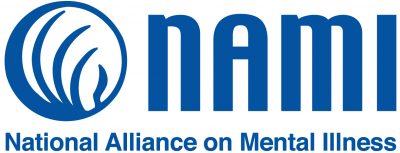
(7-9-18) A consulting company hired by the National Alliance on Mental Illness held a telephone conference call last month with a group of parents who are advocates for the 4% of Americans who have serious mental illnesses, such as schizophrenia, bipolar disorder, and persistent life debilitating depression.
A spokesperson for Community Wealth Partners said its consultants had been hired to help NAMI’s Board of Directors create a multi-year strategic plan. This surprised some parents on the call because they thought they would be raising their concerns directly with NAMI CEO Mary Giliberti.
After the call, several participants offered to write blogs for me about the issues that they’d raised.
This week, I will post four blogs. Each writer has been active at some point in NAMI.
As always, I welcome your opinion on my Facebook page – pro or con – about the forthcoming blogs. As a courtesy, the authors asked me to send their blogs to NAMI’s national leadership before I posted them, which I did late last week.
Let’s begin with some history that will help put into context why the phone call was held.
In 2013, when NAMI was searching for a new executive director, I received a phone call from a similar consulting group. I was asked to identify major issues that I felt NAMI faced. My immediate response was that the nation’s largest grassroots mental illness group was in the midst of an identity crisis – of sorts.
Traditionally, Mental Health America, was viewed as the country’s mental health “consumer” group because it was formed in 1909 by former patient, Clifford W. Beers, who exposed abuses that he and other patients suffered in state mental hospitals. It’s membership was largely composed of individuals with a wide range of mental disorders.
In contrast, NAMI was begun in 1979 by parents, mostly mothers, and traditionally viewed as a parent oriented organization. I explained that over time, NAMI membership had begun to change. More and more members were persons with mental illnesses and NAMI had started to broaden its founders’ focus on SMIs to other of the nearly 300 mental disorders listed in the DSM-5, the psychiatrists’ bible of mental illnesses. With these changes, some of NAMI’s SMI parents began to feel left out.
Evidence of this discontent became obvious in January 2017 when a group of SMI parents posted an online petition that stated: “Sadly, NAMI has allowed mission creep to put our families at risk.”
Among other things, the petition urged NAMI’s Board of Directors to push for more funding of Assisted Outpatient Treatment and for repeal of the IMD exclusion, a federal rule passed by Congress to help close large state mental hospitals by blocking Medicaid funding to institutions with more than 16 beds. These are two hot button issues that often pit parents against individuals with mental disorders.
Not long after the petition was posted, four NAMI members announced they would seek election to the NAMI Board of Directors at the 2017 convention in Washington D.C. on a self-described “Focus on Serious Mental Illness” platform. (While some of the candidates had signed the online petition, it and their candidacies were not linked.)
The four candidates’ stance and statements caused an uproar.
Although NAMI board members and employees had not intervened in past campaigns, NAMI President Steve Pitman broke with tradition by distributing an email supporting what he called a “big tent approach” that embraced “all in the conversation rather than narrow its focus to that of serious mental illness in a much smaller tent.”
The Executive Director from NAMI Maine, Jenna Mehnert, was much more direct. In an email entitled “Future of NAMI at Stake,” she accused the four SMI candidates of trying to “hijack NAMI to focus on forced medication, forced treatment and not self-determination.”
None of the four SMI candidates was elected but anger about the campaign meddling and dissatisfaction by the so-called 4% SMI parents and NAMI leadership continued to fester.
Earlier this year, I posted a blog written by Teresa Pasquini entitled “A Recovering Angry Mom Encourages Building Bridges, Not Walls in 2018.” She was one of the individuals who posted the petition calling for NAMI to pay more attention to SMIs. In the blog that she wrote for me, Pasquini encouraged an end to the turmoil within NAMI. She reached out to NAMI CEO Giliberti to offer ways to resolve differences between parents who feel abandoned and NAMI members with lived experiences who feel the organization needs to embrace everyone who has a mental health diagnosis, as well as, Lesbian, Gay, Bisexual, Transgender, Queer, Intersex, and Asexual Americans. LGBTQIA
Tomorrow, I will post Teresa Pasquini’s account what happened next.



